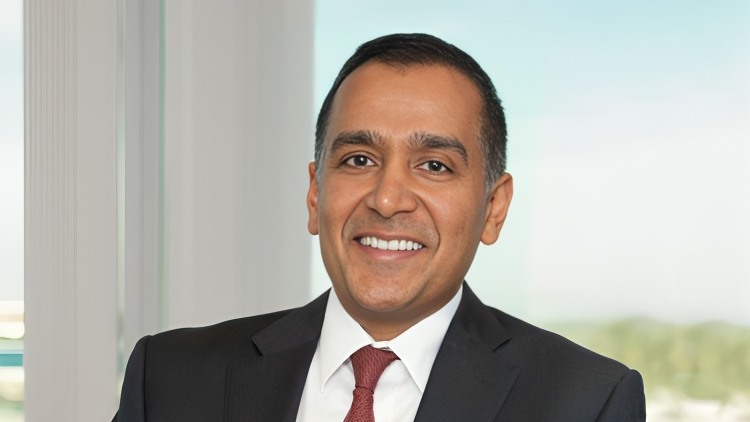Sachin H. Jain, President and CEO of SCAN Group and Health Plan and an Adjunct Professor of Medicine at Stanford University School of Medicine, shared a post on LinkedIn:
“Almost everyone who works in the health insurance industry believes they are promoting affordability and access to care.
In the aftermath of Brian Thompson’s tragic, inexcusable murder—it is clear that what the health insurance industry believes about itself matters little to an angry public that is bitterly outraged.
They are outraged that health insurers pay inadequately for needed services.
They are outraged that health insurers deny or delay necessary services in pursuit of profits.
And they and their doctors are fatigued by and angered by non-stop friction fighting for what they need.
How we got here requires a complicated tour of US healthcare policy—but “how” matters little right now.
What’s clearer than ever is that health insurers need to quickly rebuild trust with the American public.
From where will this trust come?
It starts with ending the denial.
And saying out loud: “we messed up.”
We messed up when we started selling high-deductible insurance products that turned patients into consumers and told them that they needed “skin in the game.”
We messed up when we started carelessly introducing unnuanced protocols for approving and denying your care that ignored your specific circumstances and introduced unnecessary delays.
We messed up when we stopped working as your advocate and erected barriers or washed our hands of responsibility instead.
And, more recently, we messed up when we stood behind tired industry talking points—or said nothing at all—when you needed an acknowledgment of your suffering and your pain.
The healing must begin with saying out loud what every aggrieved person needs to hear when they have been wronged: “we are sorry.”
When we set out on our professional journeys, we did so with an eye towards making things better for you.
But, along the way, our Frankenstein healthcare system took us in directions we individually or collectively never wanted to go.
And we must make things better—quickly.
A first place to start is to dramatically ease the friction you experience with every day transactions.
When you need our help—in the form of an authorization or a referral—we must act not in the days or weeks that have become “normalized” but instead act with the real-time urgency that you feel when your life is in the balance.
Too many people feel like their insurer stands between them and a necessary or life-saving treatment.
And that’s wrong.
Many companies are ending the need for referrals or pre-approvals in instances where there is near certainty of approval—a practice called “gold-carding.” We must visibly expand and accelerate those efforts while more immediately acting when you submit an authorization for necessary care.
A second point of opportunity is delivering more transparency.
At every step of the way, US healthcare confuses and obfuscates.
The fear of surprise medical bills and uncovered services has become a harmful deterrent for people seeking medical care.
Members of my own family will, on occasion, delay necessary care because, well, they—like millions of Americans—are afraid of the bill on the other side.
Health insurers must partner with health systems to give people greater transparency into true costs.
Absent such transparency, we are failing at the most basic imperative of any business that none of us would tolerate in any other context: telling you what something costs before you buy it.
A third point of opportunity is a greater focus chronic disease management. Health insurance companies manage costs through negotiating prices on services.
But what if we needed fewer services in the first place because we were succeeding in keeping you healthy?
My own late father would have been well-served by close, intensive management of his diabetes.
Instead, his commercial insurer and, eventually, Medicare underpaid for intensive primary care and instead promote paid for managing its devastating long-term consequences: kidney failure and heart and retinal disease.
How would his life had been different had our system of health thought longer-term about his health and well-being?
A final point of opportunity is more authentically committing to being who we say we are.
Health insurers say we simplify your healthcare experience and often fail to do so.
We say we care for you as a “whole person” but create discontinuities in your care.
We say we work as your advocate, but you have to sometimes fight us every step of the way.
In a complex, hard to navigate healthcare system—you need an advocate and a guide.
And that is the role that we must play for you.
Every industry has self-perpetuating narratives—and apocryphal stories of societal impact.
In the wake of the the events of the last few weeks, it’s time for US health insurance companies to acknowledge that our narrative is tired and broke.
And to say out loud what everyone needs to hear right now: we are sorry and we can and will be better.
Sachin H. Jain, MD is President and CEO of SCAN Group and Health Plan, a not-for-profit insurer that provides health plan and clinical services in 5 states.”

Sachin H. Jain is the President and CEO of SCAN Group and Health Plan and an Adjunct Professor of Medicine at Stanford University School of Medicine. He also serves as a Board Member at The Paul and Daisy Soros Fellowships for New Americans, an Academic Hospitalist (WOC) at the U.S. Department of Veterans Affairs, and a Board Member at America’s Health Insurance Plans (AHIP). He is also a board member of Omada Health.


